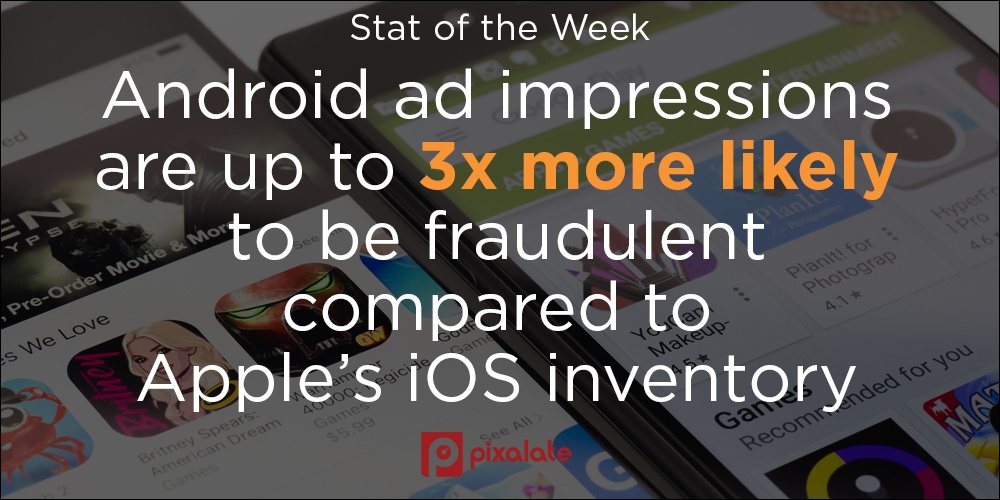
This week's review of ad fraud in the digital advertising space.
Click the Stat of the Week for more information.

According to AdExchanger, DSPs are putting pressure on SSPs to improve inventory quality. AdExchanger reports that "DSPs are being more aggressive in blocking supply sources until they clean up." AdExchanger notes that "the pressure could force the ecosystem to grow up."

eMarketer reported on a Credit Suisse study which found that one-in-four (24%) of marketers are concerned about digital ad fraud, a number eMarketer considers "surprising" given the increased focus on ad fraud in the industry today. Marketers are also increasingly concered about ad blocking and viewability, the latter of which is "intertwined with fraud," per eMarketer.

MediaPost reports that brand safety emerged as a primary theme at the NewFronts this week, including trends around poor inventory quality and transparency. MediaPost notes that "poor ad quality and [a] lack of transparency [are] rampant across digital advertising," — and marketers are taking notice.

AdExchanger draws a guide for mobile location-based data marketing in 2017, but notes that location data has "a quality problem" — with upwards of 90% of mobile location data used for ad targeting proving incorrect.

Reporting on proprietary findings from Pixalate, MediaPost noted that 51% of connected TV and over-the-top (OTT) programmatic ad impressions were fraudulent in Q1 2017. The article also highlights that 80% of desktop display ads in Japan were fraudulent.
Sign up for our blog to stay updated with new stats, trends, and analysis on digital ad fraud.
*By entering your email address and clicking Subscribe, you are agreeing to our Terms of Use and Privacy Policy.
These Stories on Weekly Recaps
*By entering your email address and clicking Subscribe, you are agreeing to our Terms of Use and Privacy Policy.

Disclaimer: The content of this page reflects Pixalate’s opinions with respect to the factors that Pixalate believes can be useful to the digital media industry. Any proprietary data shared is grounded in Pixalate’s proprietary technology and analytics, which Pixalate is continuously evaluating and updating. Any references to outside sources should not be construed as endorsements. Pixalate’s opinions are just that - opinion, not facts or guarantees.
Per the MRC, “'Fraud' is not intended to represent fraud as defined in various laws, statutes and ordinances or as conventionally used in U.S. Court or other legal proceedings, but rather a custom definition strictly for advertising measurement purposes. Also per the MRC, “‘Invalid Traffic’ is defined generally as traffic that does not meet certain ad serving quality or completeness criteria, or otherwise does not represent legitimate ad traffic that should be included in measurement counts. Among the reasons why ad traffic may be deemed invalid is it is a result of non-human traffic (spiders, bots, etc.), or activity designed to produce fraudulent traffic.”

